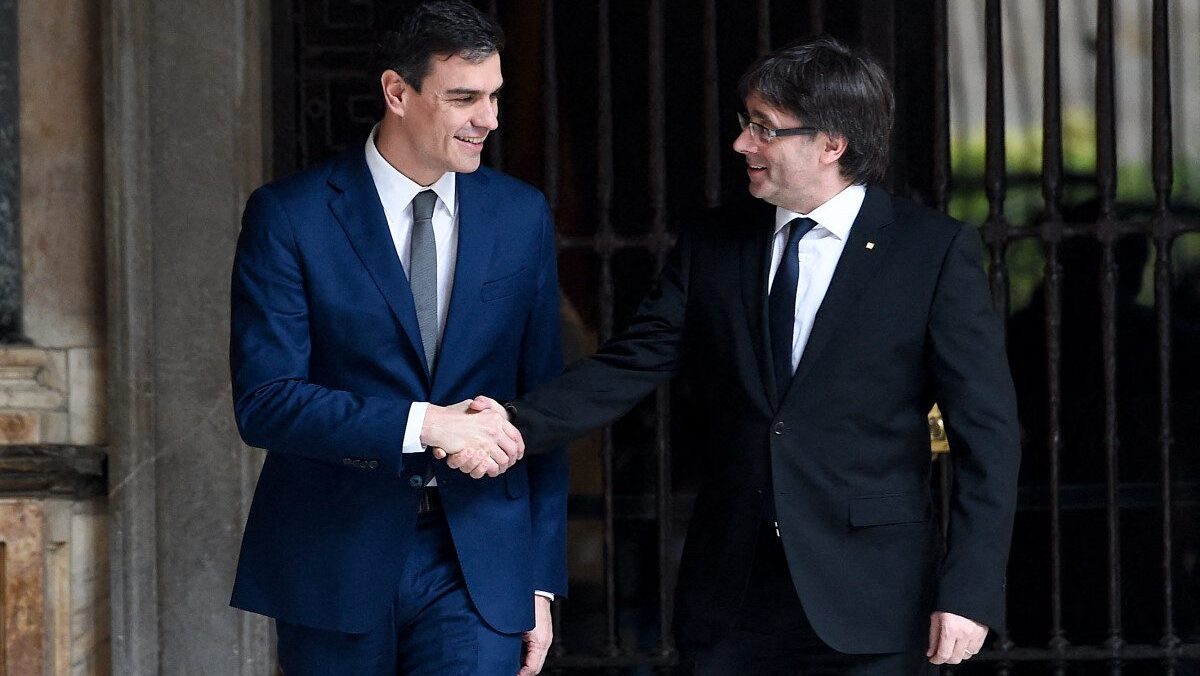
Then-Catalan regional president Carles Puigdemont (R) and Spanish Socialist Party (PSOE) leader Pedro Sanchez (L) shake hands before a meeting at the Generalitat palace in Barcelona on March 15, 2016.
Photo: Josep LAGO / AFP
The Spanish Justice Commission at the country’s Congress has approved the government’s Amnesty Law made-to-measure for those actors who organised a fraudulent Catalan independence referendum on October 2017, declared independence, and engaged in subsequent acts of violence (on the part of groups like the C.D.R. or “Democratic Tsunami”). The latter, it should be remembered, resulted in deaths and physical incapacity.
An earlier, initial draft for this Amnesty deal was rejected by Junts per Catalunya, the governing party in Catalonia in 2017, and subsequently made far more comprehensive by the Spanish socialists, whose submission to its coalition partners is abject.
The Justice Commission, however, does not have the authority to override Spain’s legal code, nor does it have the democratic mandate to redefine or obviate the charge of treason. That the government has chosen not to go through normal, slower, parliamentary procedures indicates
1) its desperation to keep the ruling coalition together;
2) a possible need to distract from mounting evidence of corruption (the Abalos case); and
3) the general abrogation of judicial and legislative functions by the executive branch which has characterised Spain’s current government.
What this approval does mean, however, is that the EU may well accept the new, amnestied, status of Carles Puigdemont, regional president of Catalonia at the time of the 2017 referendum, allowing him to stand at the next European Parliamentary election.
The blanket amnesty is reportedly only excluding cases that resulted in death or that involved a violation of “human rights.”
Charges of treason, however, are included.
In this context, we should highlight the so-called “Voloh Case,” an ongoing investigation revealing links between Catalan separatism and Russian businessmen with ties to the Kremlin. In this context, Catalan member of parliament Elsa Artadi recently told the judge presiding over this case that Carles Puigdemont asked to meet with representatives from Moscow.
